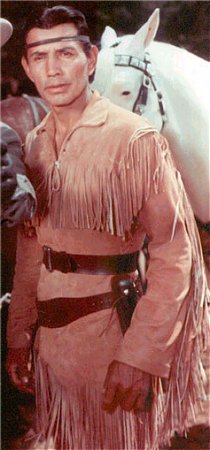Common Portrayals of Aboriginal PeopleAs the portrayals of Native characters—either as primitive, violent and deceptive or else as passive and full of childlike obedience—extended to TV, novels and comics, they became familiar, comfortable signposts for much of Western civilization whenever it needed to acknowledge the Aboriginal presence. Since few people, especially in larger urban centres, actually came into contact with Indigenous populations, these portrayals, however inaccurate, had all the more impact. Though popular U.S. films rarely looked north of the border, these stereotypes etched themselves just as deeply into the Canadian psyche.
"We were well into the second half of the 20th century before it occurred to filmmakers that Native people were still around, and even leading interesting lives," says Taylor. "Groundbreaking films like Pow Wow Highway, Dance Me Outside and Smoke Signals provided fresh and contemporary—though still romanticized—portrayals of the Native community."Comment: This article is good because the author relied mainly on my site for information. You can tell by the links he or she included in the righthand column.



No comments:
Post a Comment
Note: Only a member of this blog may post a comment.